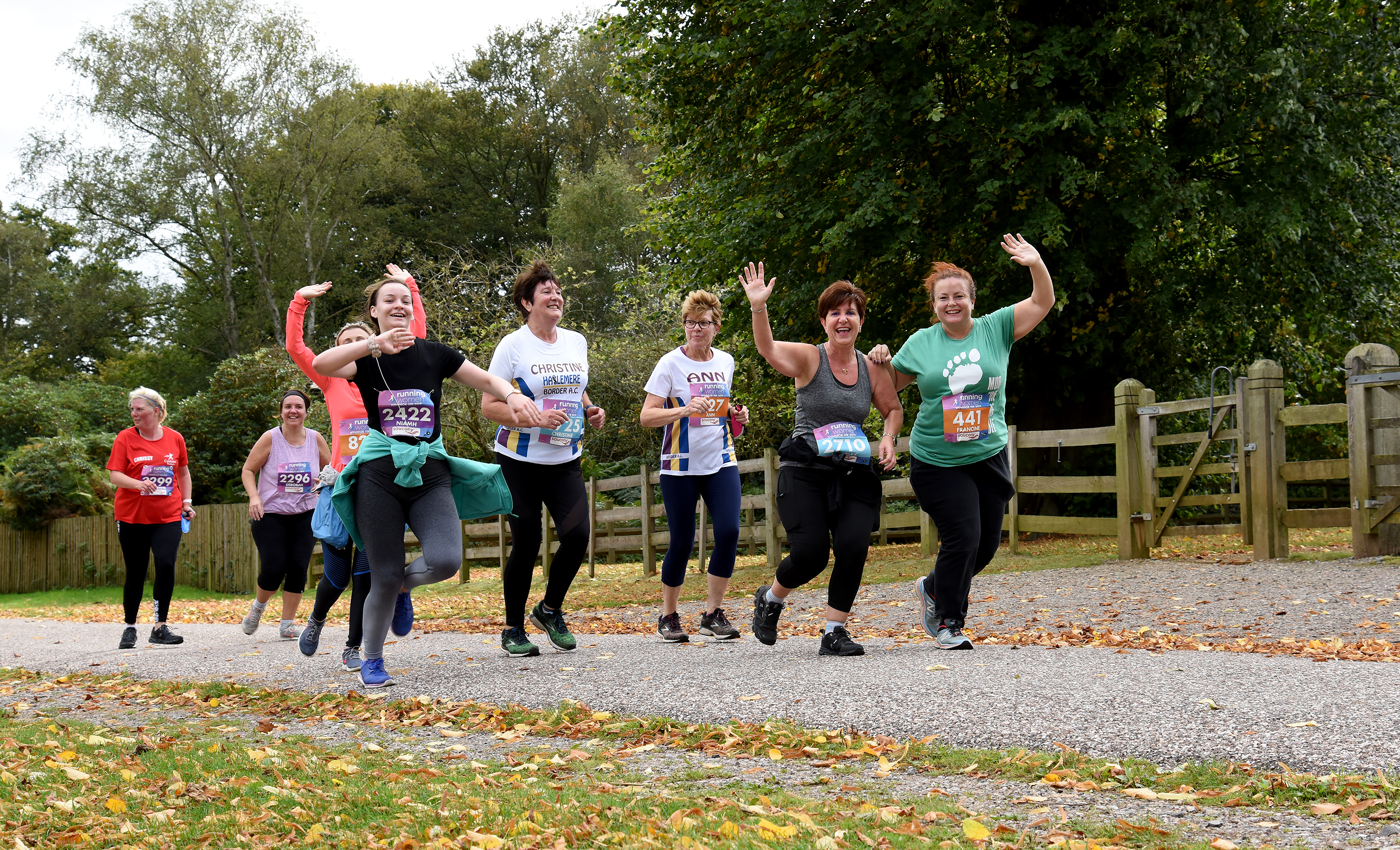Why Running is Benefitting Your Mind as Well as Your Body
We all know that running is good for our body, and after the past few years of lockdowns, home gym sessions and the ‘new normal’ setting in, we’re more aware than ever of the fact that exercise is good for our mental health too.
We dug deep into the benefits of running, looking at the latest studies and ideas around this slightly taboo (but less so now!) topic. Please note, we are not health care specialists or professionals – this is just the knowledge we’ve picked up from years of running ourselves and knowing people in the running community!
Reducing stress
When you run, endocannabinoids are released in our body. This is a naturally-produced chemical substance, actually similar to cannabis, that enters our bloodstream and gets transported to the brain, helping to provide short-term feelings of reduced stress and calmness.
Running can not only reduce the stress you feel in the long term, but also help control your body’s ability to deal with existing mental tension through the production of norepinephrine. This chemical is produced within you to help moderate your brain’s response to stressful environments. Over time you will likely be able to deal with stress and intense situations better if you run consistently.
Mood booster
There’s a lot of science that explains why we feel a ‘runner’s high’ mood-boosting effect after our sessions. Whilst you might have heard this feeling put down to hormones called endorphins, scientists have shown that this may not actually be the case, because the endorphins don’t get past the barrier between your brain and your blood.
The deep euphoric feeling of calmness you might get after your run is actually more likely a result of the endocannabinoids that we introduced to you earlier. As you run, blood circulation increases, as does the levels of endocannabinoids in your blood, which move easily through the blood-brain barrier, causing a temporary improvement in your feelings towards stressful situations.
These hormones are often why people feel like a run makes everything ‘brighter’. A study of 14,000 people by Asics found that 82% of runners in the UK find that running helps clear their minds.
A little bit of sunshine
Running outside on a sunny day (not even a warm day!), helps your body to produce more Vitamin D. This nutrient has been found the help reduce the likelihood of experiencing symptoms associated with depression.
Creativity surge
Any form of exercise that increases your heart rate, can boost your creativity for up to two hours afterwards. So rather than staring at that blank page or project problem, go for a run to refresh your body, mind and creativity all at once.
Mental health issue recovery
Some studies show that regular running can have the same effect that medication does when it comes to relieving the symptoms of anxiety and depression. Note though, that running will often not target the root cause, but instead just alleviate the symptoms that come with these mental health issues.
But it’s not just negative feelings that running can reduce. People who have developed mental health conditions or have become stressed, have an increase in peripheral inflammation. Just as your ankle sees an increase in inflammation when you twist it, your brain swells when it’s ‘injured’ too. Running has been shown to reduce such inflammation and consequently relieve the pressure of mental health conditions on an individual too.
It’s recommended by many health care professionals that running can help create a calmer state of mind and therefore reduce feelings of anxiety. So whether it’s a run, a walk, or a plod with your dog, remember that moving your body can help you get through tough times.
Brain function
Cardiovascular exercise, such as running, has been shown to create new brain cells and generally improve your overall brain performance. Furthermore, a run of a higher intensity has shown to increase levels of brain-derived protein in the body. This protein has been thought to help with your decision-making capabilities, as well as your ability to think and learn at a deeper level.
Supporting studies have shown that those who are more active, are more productive and have more energy than their peers who aren’t. Not only this, but those who run also have a better task-switching ability, meaning they spend less time ‘faffing’ between tasks.
As well as help you to think deeper, react faster or imagine better in the now, running may also help to prevent cognitive decline in the later years of your life. It’s suggested that cognitive decline occurs after you reach 45 years old, but running (or any form of exercise really!) can help boost the chemicals in your brain that help to prevent the degeneration of the hippocampus. This is a hugely important section of the brain, responsible for your memory and learning.
Sleep improvement
Running has been shown to help set and maintain a regulated sleep schedule. Chemicals released in your body after your run help to promote deep sleep.
Studies show that the optimal time to exercise is five to six hours before you go to bed. The reason for this is that it raises the body’s core temperature, then falls back to its normal temperature a few hours later – an internal signal to your body that it’s time for bed. This is supported by studies that show midday to be the ideal time to exercise due to supporting, rather than hindering, the body’s natural circadian rhythms.
Ultimately, a consistent sleep schedule is good for your brain and body for the days after. This is because sleep will aid concentration and provide clarity in thought, as well as allow appropriate recovery of your muscles to occur.
So next time you don’t really fancy going for that run, as yourself this: would your mental health benefit from this session? If yes, why not just take it easy and let those chemicals inside you balance everything out.
References:
Asics (2020). https://www.asics.com/gb/en-gb/frontrunner/news/new-study-explores-the-uks-new-found-love-of-running
Harris-Fry (2022). https://www.coachmag.co.uk/mental-health/8602/how-running-can-improve-your-mental-health
Linden (2022). https://www.hopkinsmedicine.org/health/wellness-and-prevention/the-truth-behind-runners-high-and-other-mental-benefits-of-running
Similar Posts:
- Why Running is Benefitting Your Mind as Well as Your Body
- Why Running Is A Powerful Weapon Against Emotional Anxiety
- Why Exercising Is Crucial For Emotional Wellness During Lockdown
- 5 Ways To Sleep Better – And Run Faster!
- Summer time supplement
- 15 Tips For A Healthier Future-You




Add Comment